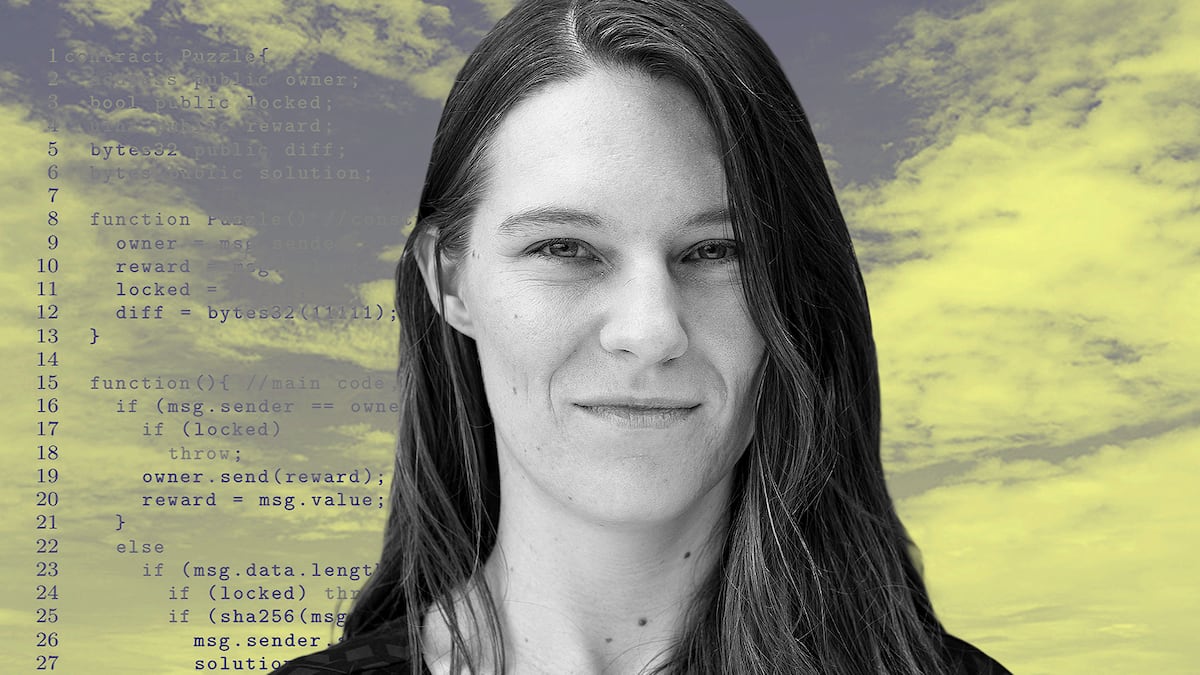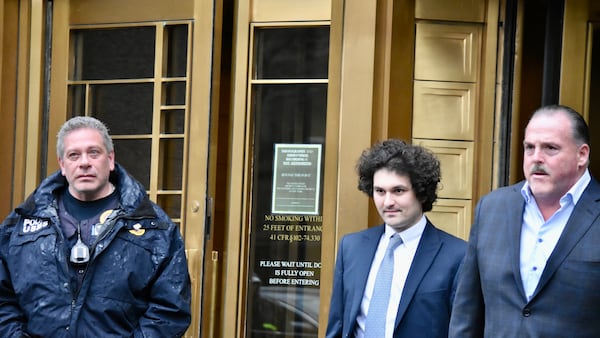- Alameda co-founder Tara Mac Aulay raised concerns over Sam Bankman-Fried in 2018.
- She left the firm several months later, due to what she called “100 small things” he had done.
- Lantern Ventures, Mac Aulay’s next venture, lost millions following the collapse of Celsius.
Michael Lewis caught a lot of flack for his new book on Sam Bankman-Fried last week. In his defence the one-time billionaire had very few critics during his dizzying rise to the top, except of course for his co-founder at Alameda Research.
Tara Mac Aulay, a fellow believer in Bankman-Fried’s ethos dubbed effective altruism, paired up with the crypto trading whiz to found the hedge fund in 2017. She was among the first to express doubts about him, according to Lewis’ new book, “Going Infinite: The Rise and Fall of a New Tycoon.”
In April 2018, along with others on the management team, she quit.
The decision was due, in part, to what she said were “concerns over risk management and business ethics,” as well as millions going missing at FTX’s hedge fund arm.
She hasn’t spoken to her co-founder since 2018, she said on X, formerly Twitter, in November.
“Tara had long since decided that he was dishonest and manipulative,” Lewis wrote about Mac Aulay’s stance on Bankman-Fried.
The two met while she was working at the Centre for Effective Altruism in Berkeley, California.
Effective altruism explores how to use the resources you have to maximise the good you do. Bankman-Fried was one of her biggest donors.
It was Mac Aulay’s early success exploiting price inefficiencies — known as arbitrage — in crypto markets that drew Bankman-Fried to her.
Alameda Research launched with about half a million dollars Bankman-Fried had left from his bonus at his former employer, Wall Street trading firm Jane Street.
Within a few months, the two founders managed to persuade wealthy altruists to lend them $170 million to trade crypto, according to Lewis.
Humbled in the beginning
Alameda ran into problems in early 2018, according to Lewis’s book.
Bankman-Fried demanded a lot from the 20 or so effective altruists he had hired.
The majority were in their twenties and only one had any finance experience. “Most neither knew nor cared about crypto,” Lewis wrote.
The early hires had “just bought into Sam’s argument” that crypto was an “insanely inefficient market” from which they could extract billions of dollars with a “Jane Street-like approach.”
Alameda sought to do this through arbitrage, just like Mac Aulay had done, but on a much larger scale. The idea was to exploit price discrepancies on crypto exchanges, primarily across Asia.
It wasn’t easy working with Bankman-Fried, according to Mac Aulay.
“He was demanding and expecting everyone to work 18-hour days and give up anything like a normal life,” she said.
He would routinely miss meetings, not shower for weeks, and surround himself with a mess of old food. Falling asleep at his desk was a regular occurrence.
Most of the team’s time was spent reining in Bankman-Fried’s insatiable desire to trade.
“The entire management team wanted to leave,” Ben West, who was part of the five-person management team, told the author.
Lewis chronicled one example where Bankman-Fried agreed on a compromise regarding the use of his trading bot, which was able to arbitrage hundreds of different cryptocurrencies across multiple exchanges 24 hours a day.
He agreed he would only use it while watching the system as it traded — as a fail-safe to halt any heavy losses. He fell asleep instead, as the bot system traded unsupervised for hours.
“From that moment the entire management team gave up on ever trusting Sam,” Lewis wrote.
Ripples of discontent
It was Bankman-Fried’s total disregard for risk management that set in motion the events that would lead to Mac Aulay’s exit.
Alameda’s finances were in a “state of chaos,” by early 2018, Lewis said. It had lost millions of dollars, but its staff couldn’t quantify how much.
Its trading system lost about $14 million dollars in February 2018, or half a million per day, and “some additional millions had simply vanished,” Lewis wrote.
An Alameda employee noticed that $4 million worth of the Ripple-affiliated XRP token, which traders used as a payment rail to book profits from an arbitrage trade on South Korean exchanges, had gone missing.
Bankman-Fried wasn’t worried, he was sure it would turn up somewhere.
The management team weren’t convinced and Alameda stopped trading for two weeks as they attempted to locate the money. They still couldn’t find the $4 million.
The team grew weary of Bankman-Fried’s behaviour.
“How are we going to pass an audit if we’re missing 10% of our transactions?” Mac Aulay asked.
Mac Aulay and the entire management team, as well as half the employees, left Alameda on April 9, 2018. They received somewhere between $1 million and $2 million in severance pay, according to Lewis.
“There was no smoking gun,” Mac Aulay said, but rather it was “100 small things” Bankman-Fried had done wrong that drove them to leave.
Life since Alameda
Mac Aulay went on to start a trading firm, Lantern Ventures, which has around $400 million in assets under management. Several former Alameda employees joined the company, she said.
Lantern Ventures was started “to do things differently,” she said in November.
“I am shocked, appalled, and frankly, angry,” she said following the public collapse of FTX in November 2022.
“Sam’s actions are a perversion of everything crypto stands for.”
Lantern Ventures affiliate, Pharos Fund, might have avoided FTX, but it has links to another crypto collapse.
The firm is bankrupt crypto lender Celsius’ largest creditor.
It is owed around $81 million.
Adam Morgan McCarthy is DL News’ London-based Markets Correspondent. Got a tip? Reach out at adam@dlnews.com.





